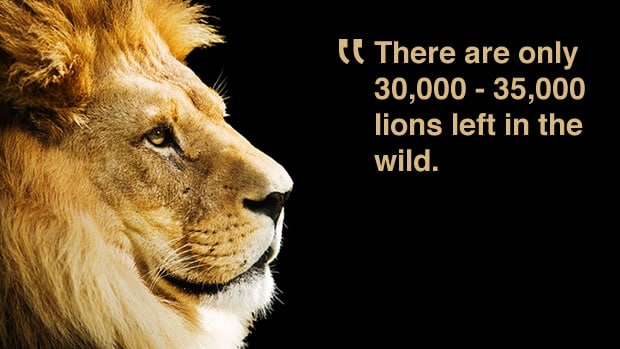Adopt A Lion With The WWF
The WWF has been working in the Mara Serengeti for over two decades and this is prime habitat for the lion. It comes as no surprise the WWF is familiar with the changes and they say the landscape faces more pressure today than it ever has in the past As agriculture sprawls and human populations grow, increasingly wildlife and humans are coming into ever-closer contact.
Why adopt a lion?
The WWF wants to use the “king of the jungle” via their adopt a lion program as a figurehead to draw attention to the incredible landscape.
- Lions are important symbolically they are also important ecologically.
The presence of lions in a particular locations means the area is itself healthy and resilient enough to sustain plenty of other species such as buffalo, gazelles and elephant. So the lion itself indicates a superior ecosystem. - Adopting a lion not only protects the animal, but also their habitat.
For lions to be protected we must also look after their precious habitat and this means examining the entire ecosystem. For example the annual wildebeest migration is a source of food not just for lions but plenty of other species as well. The migration is a direct response to the rains and without the Mara overflowing with water, up to 80% of the wildebeest population would die. - The number of lions in the wild is falling at a dramatic rate.
According to the latest survey data lions have disappeared from as much as 80% of their natural African habitat largely as a result of increased human development. Agriculture and cattle grazing has caused a large reduction in the amount of prey available to lions and this pushes them into closer contract with humans and livestock often fatally so.
The WWF is working with the Mara Lion Project to work out exactly what these challenges means for lions and how they are being affected. Using the information, the WWF can help mitigate some of those challenges. You can help with the project by adopting a lion today from as little as £3.00 a month and help secure both the species and its habitat for future generations.


